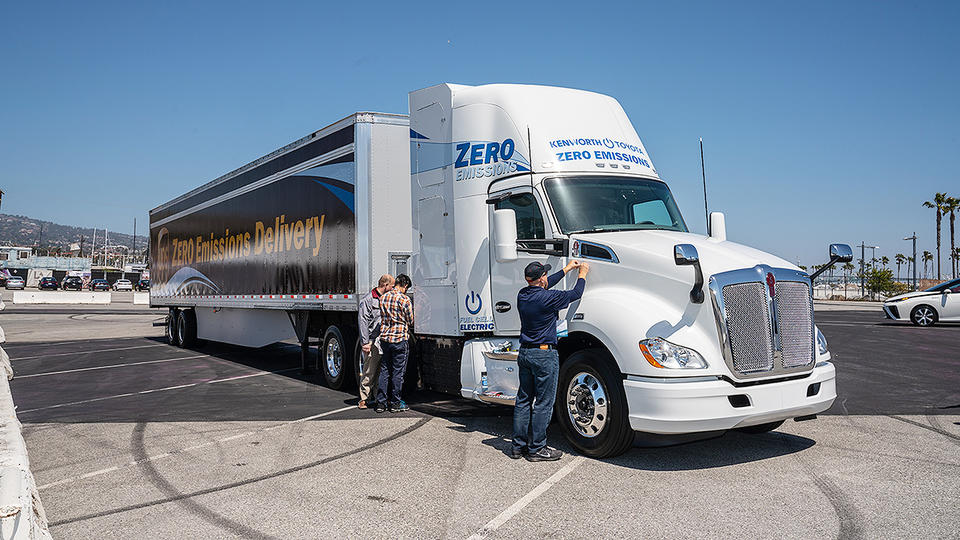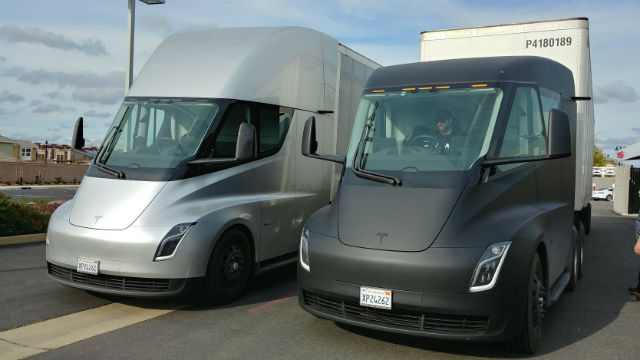California is the first state in the country to mandate the sale of emissions-free trucks. The Air Resources Board voted unanimously on Thursday to adopt a new Advanced Clean Trucks regulation requiring truck makers to shift from diesel full towards less polluting battery electrics and hydrogen fuel. California Gov. Gavin Newsom praised the plan in an email saying, “Even in the midst of a global pandemic, climate change is still an existential threat — both to our way of life and our children’s health,” he added “Communities and children of color are often forced to breathe our most polluted air, and today’s vote moves us closer toward a healthier future for all of our kids.”
The regulations will not take effect until 2024 but will require at least 40% of all tractor trailers sold in California to be powered by some form of zero emissions technology. Medium-duty trucks will be required to switch over 55% of their sales by 2035, and 75% of delivery trucks and vans would have to use zero-emissions technology by 2035, at which point all government fleets and last-mile delivery trucks would have to meet the regulations.
The Advanced Clean Trucks regulation is similar to the Advanced Clean Cars program the California Air Resources Board adopted in 2012. The Advanced Clean Cars program focuses on improving the fuel efficiency of passenger vehicles and accelerating the transition to zero-emission electrics. The new California regulations pushing to reduce truck emissions will no doubt shake up the auto-industry. It may even encourage new competitors such as Rivian, which has a contract to produce around 100,000 all-electric delivery vans for Amazon.
During a hearing regulators were met with mixed feedback regarding their proposals. On one side of the spectrum, clean air advocates argued this is a critical shift needed to make progress on the states air pollution problem. On the other side, members of the Truck and Engines Manufacturers Association warned about the high costs of developing charging infrastructures for said vehicles. However, Electrify America announced on Friday it had completed a network of chargers spanning the first of two cross-country routes it expects to power up this year alone. This one passing through 11 states and running 2,700 miles. EA is planning more than 10,000 public charging stations across the country. Competitors such as ChargePoint and EVGo are laying out similar plans. Tesla has also initiated a major charging grid across North America. In preparation for the release of their Cybertruck pickup and Big semi truck Tesla plans to enhance their Supercharger network.

Like Tesla, Nikola Motors hopes to gain momentum thanks to the CARB ruling. The Phoenix-based start-up is focusing on hydrogen fuel-cell semi trucks, such as the Nikola One. To avoid concerns about finding fuel, the company hopes to set up its own network of hydrogen stations across the country. However, traditional truck and automotive manufacturers are laying out massive plans of their own. General Motors CEO Mary Barra announced this month they have plans to build electric delivery vans as well as the all-electric Hummer pickup set to debut in 2021. The various subsidiaries of Daimler AG have already launched an array of electric vans and heavy trucks, such as Freightliner. Meanwhile, Toyota is partnering with Kenworth in developing hydrogen-powered Class 8 semi prototypes. Prototypes that could lead to production models later this decade. Other start-ups that could benefit from the new California standards and existing EV rules include Lordstown Motors and Bollinger.
Conventional manufacturers, and up to 10 start-ups, are expected to be producing all-electric pickups by 2023. These vehicles should include the Cybertruck, the Hummer, and an all-electric version of the Ford F-150. The motion for electric trucks is expected to open the door to new manufacturers but it is clear that conventional marques are in now way ready to walk away.

